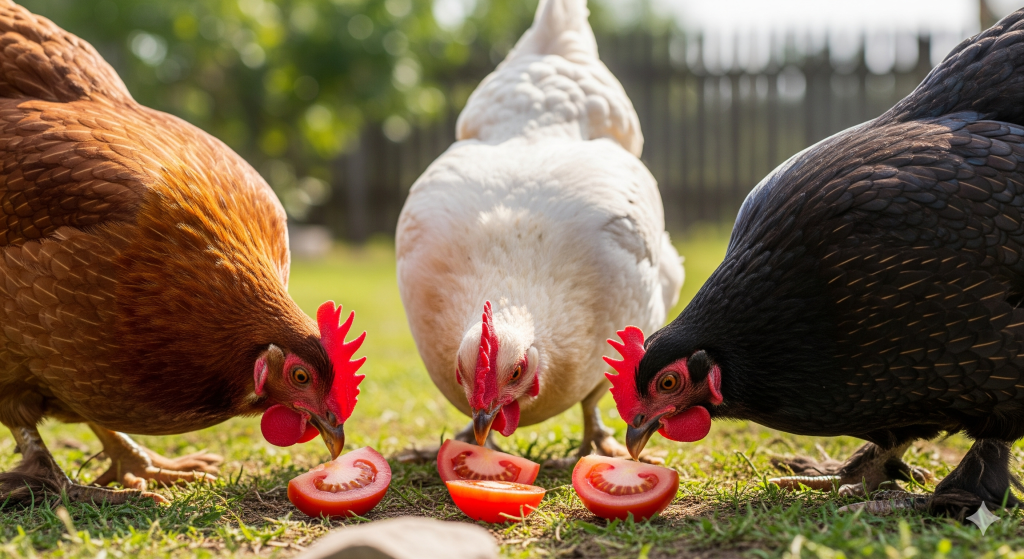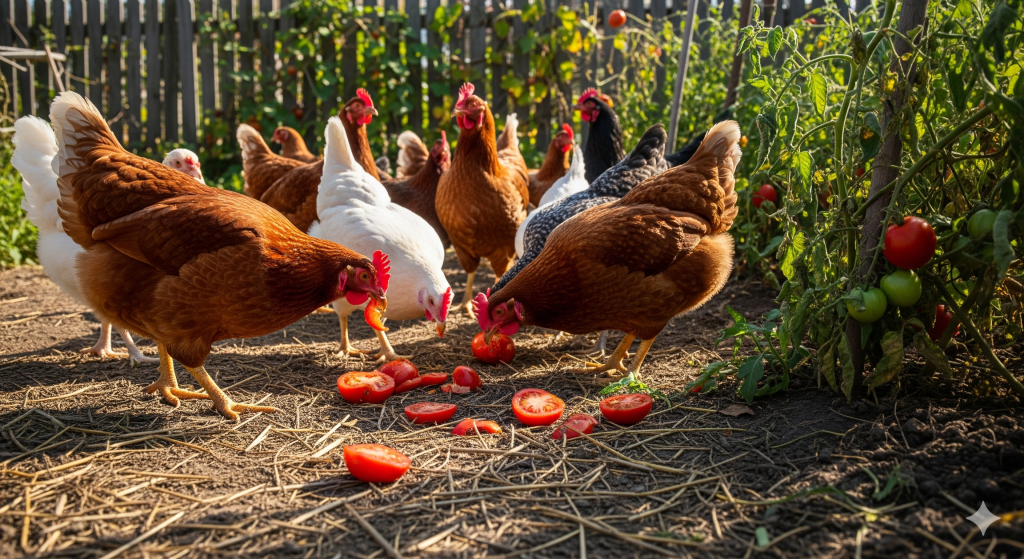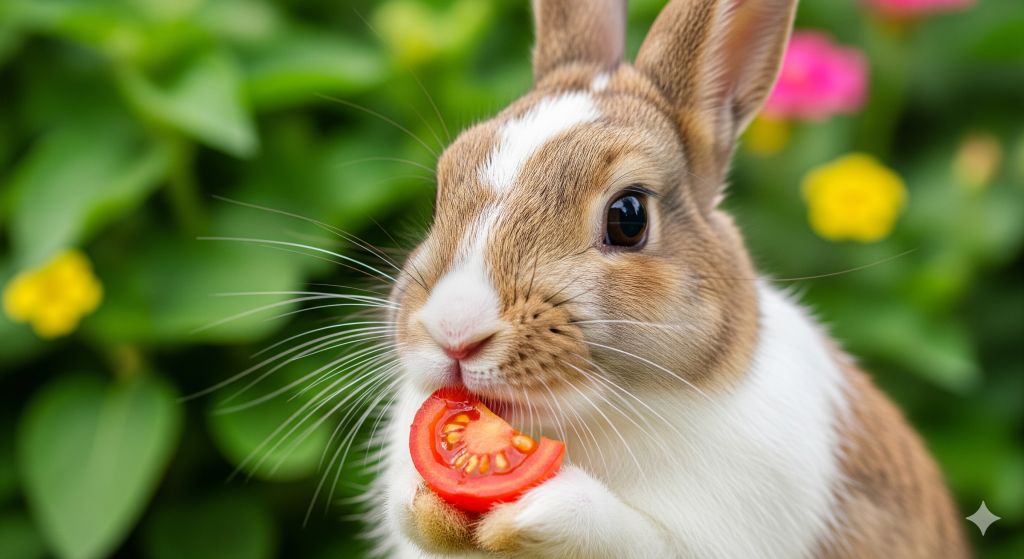Table of Contents
As a backyard chicken keeper, you’re always looking for ways to supplement your flock’s diet with healthy and enjoyable treats. Ripe tomatoes, with their vibrant color and juicy texture, often come to mind, especially when your garden is overflowing with them. But while we’ve established that chickens can safely eat ripe tomatoes, a new question arises: can chickens have tomatoes every day?
The simple answer is no, and here’s why. While ripe tomatoes offer nutritional benefits, they should remain a treat, not a dietary staple. A chicken’s primary diet should always consist of a high-quality, nutritionally complete layer feed, formulated to provide all the necessary vitamins, minerals, and protein for their health and egg production. Relying too heavily on treats, even healthy ones like tomatoes, can upset this delicate balance.
Want the Ultimate Guide to Off-Grid Living?

If you love the self-sufficient lifestyle, this is the only guide you’ll ever need. Learn how to generate your own power, secure your water supply, and become truly independent. No fluff, just actionable plans.
➡️ Check out The Self-Sufficient Backyard and start your journey today!
Can Chickens Eat Tomatoes Every Day? The Moderation Mantra
Feeding tomatoes daily can lead to several issues, primarily related to nutritional imbalance and potential digestive upset if consumed in large quantities. Here’s a breakdown of why moderation is key:
- Nutritional Imbalance: A chicken’s commercial layer feed is meticulously balanced to meet all their dietary requirements. Filling them up on large quantities of tomatoes, which are mostly water and some specific vitamins, means they’ll consume less of their essential feed. This can lead to deficiencies in protein, calcium (crucial for strong eggshells), and other vital nutrients over time.
- Acidity Concerns (in excess): While ripe tomatoes are not too acidic in moderation, feeding very large amounts daily could potentially lead to a slight disruption in a chicken’s delicate digestive system, especially in more sensitive birds.
- Lack of Diversity: A varied diet, within the context of appropriate treats, is beneficial. If tomatoes are an everyday occurrence, your chickens might miss out on other beneficial scraps and foraged items that offer different nutrient profiles.
- Waste and Cost: If your chickens are overfed with treats, they might waste more of their expensive layer feed.
So, what’s a good frequency? Most experts recommend offering treats, including ripe tomatoes, 2-3 times a week at most, and in small quantities. Treats should never make up more than 10% of their total dietary intake. Think of it as a supplemental snack, not a meal replacement.
Are Tomatoes Good for Chickens?
Absolutely! When given appropriately, ripe tomatoes are indeed good for chickens. They are a treasure trove of beneficial nutrients that can boost your flock’s health:
- Hydration: With about 95% water content, tomatoes are excellent for keeping chickens hydrated, particularly during warm weather.
- Vitamins: Rich in Vitamin C (immune support), Vitamin A (vision and feather health), and Vitamin K (blood clotting).
- Antioxidants: Tomatoes are famously high in lycopene, a powerful antioxidant that helps protect cells from damage and can contribute to vibrant yolk color.
- Minerals: They provide essential minerals like potassium, important for fluid balance and overall metabolic function.
- Enrichment: Pecking at juicy tomato pieces provides mental stimulation and keeps your flock entertained, contributing to their overall well-being.
These benefits, however, are best realized when tomatoes are part of a balanced diet, not when they dominate it.
What Part of Tomatoes Can Chickens Eat?
This is the most critical distinction for any chicken owner to understand:
- Safe to Eat (Ripe Fruit Only): Chickens can safely eat the ripe, red (or yellow, orange) fruit of the tomato. This includes the pulp, seeds, and skin. As tomatoes ripen, the levels of the toxic compound solanine decrease significantly, making the fruit safe for consumption.
- Toxic (Avoid at All Costs): Never feed your chickens any other part of the tomato plant. This includes:
- Leaves: The foliage of the tomato plant.
- Stems/Vines: The main structure of the plant.
- Flowers: The blossoms before they turn into fruit.
- Unripe (Green) Tomatoes: Green tomatoes (even if they are destined to turn red) contain high levels of solanine and are toxic.
These parts of the plant belong to the nightshade family and contain solanine, a glycoalkaloid that can cause gastrointestinal distress, lethargy, weakness, and even be fatal to chickens if ingested. Always ensure that any tomato offerings are fully ripe and free from any green plant material.
Conclusion
While your chickens might absolutely love pecking at juicy, ripe tomatoes, the answer to “can chickens have tomatoes every day?” is a definitive no. Ripe tomatoes are a wonderful, nutritious treat that offers great hydration and a boost of vitamins and antioxidants. They are excellent for enrichment and reducing kitchen waste.
However, treats should always be given in moderation—ideally 2-3 times a week, making up no more than 10% of their diet. Their primary nutrition should always come from a high-quality commercial layer feed. Most importantly, always ensure you are only feeding the ripe fruit and rigorously avoiding all green parts of the tomato plant and unripe tomatoes, which are toxic to your flock. By following these guidelines, you can safely share your garden’s bounty and keep your chickens happy and healthy.



